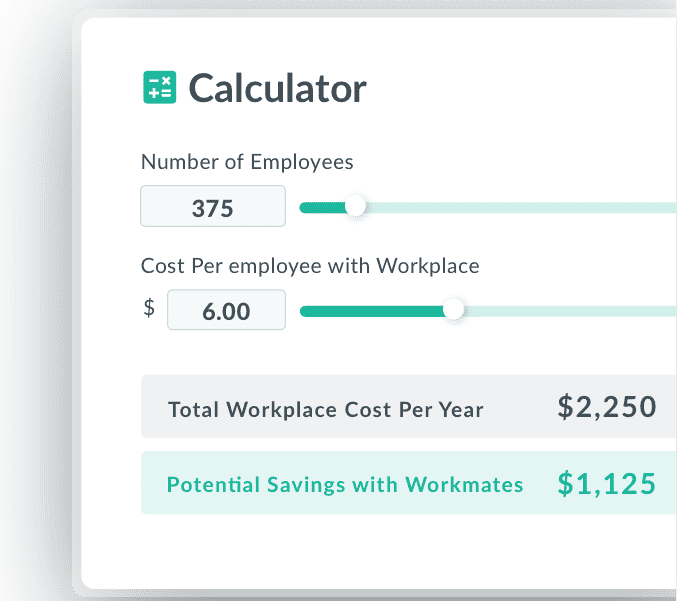Tips For Being Productive While Working Remotely
.png)


 Cut onboarding time
by 60%—here's the
Ultimate Checklist
that helped do it.
Cut onboarding time
by 60%—here's the
Ultimate Checklist
that helped do it.

Remote work has only increased throughout the past few years and shows no sign of slowing down. When COVID-19 hit, it led to many companies shifting their employees away from the office and into working from home. Working from home has become the new normal for most, and in many cases has proven to be successful. However, there are now many other aspects to consider when it comes to overall productivity. Compared to working in the office, it’s now easier for people to get ready and start their day without having to budget their time for commuting to the office. It’s also common to have at-home offices that allow for limited distractions and a way to separate work from your personal life. While working remotely has proved to be beneficial, there are times when it can be difficult to stay productive. Continue reading to learn about different ways to increase productivity for yourself while working from home.
Design an Office Space
In an effort to improve your productivity while working from home, it’s important to ensure that you have a proper space to do your work. If you find yourself unable to focus while working from home, it may be because of the lack of a conducive work environment. In the office, it’s easier to get work done because you feel pressure from those around you to be productive; it’s a quieter environment with fewer distractions. It’s important to create a similar office space in your home where you can work without distractions or interruptions as well. Dedicate a room for your workspace so you can have a space to focus on work and nothing else. Make sure the area that you choose for your office is disturbance-free and functional. If the space you're currently using or thinking about using is full of clutter or being used as a multipurpose room, take time to declutter and clean the room so that you are starting with a clean, fresh slate.
While some may have an extra room in their home that they can convert into an office, others may not. If you don’t have a space that you can dedicate as your office, you might have to consider building an additional room or extensively renovating your home. If you’re tight on money or need some financial assistance, consider using a fixed-rate home equity line of credit to help fund any renovations needed for your office space. This allows you to borrow money against the equity of your home as needed to use for a variety of purposes, whether it be for soundproof panels for your workspace, or for buying office supplies. Using this funding option will allow you to be able to finance your office renovation and not have to worry about handling the cost on your own. You can also ask your employer if they offer a home office stipend that can help cover the costs.

Create a Schedule
Working remotely does hold many benefits, but it also brings many challenges. Since you don't have to wake up and get ready to go into an office, you may find yourself putting less effort into your morning routine. While it is easier to be able to wear whatever you want when you work from home, it’s still important to create and stick to a good morning routine. Taking the time to plan out your day the night before will allow you to feel more prepared going into the next morning and help you be more productive throughout the day. When crafting your morning routine, it’s important to create a schedule that works for you and is reasonable. Think of things that you always want to do, but feel that you don't always have the time for. For example, right when you wake up, instead of checking your phone or turning on the TV, take some time to plan out your day with a to-do list of tasks.
When first waking up, it’s a good idea to avoid using your phone right away because it’ll only encourage the prolonged use of electronic devices throughout your day and disrupt your body from properly waking up. Taking the time to plan out your day right when you wake up will help you feel more put together at the start of your day and be able to manage your time more effectively to fit in everything that needs to be done. Another aspect you should include in your morning routine is making an effort to get dressed and ready for the day. Working remotely means that you don’t have to dress up as you would at the office, but setting aside time to get ready can help you to establish that your workday is about to begin and helps to shift your focus into that work mode.

Introduction to Conflict in the Workplace
(and How it Erodes Productivity & Culture)
Establish Good Habits
Even though you're working remotely, make sure that you’re establishing good habits for your workday so you can ensure that you're staying on track. Working remotely offers more flexibility than working in an office, but at times, it can be more difficult to step away from work at the end of the day, or harder to realize when you may need a break. It’s important to schedule breaks throughout the day so you can step away and reset for a little bit, and come back feeling more refreshed and ready to continue working. Different ways to incorporate breaks in your day can be through taking a lunch break away from your desk, going for a walk, stretching, or going to get coffee. Being able to make time to step away is important so you don’t become burned out over time.
Burnout is very common these days and has increased over the last couple of years. The risk of burnout while working at home all day every day is rising. A survey by Monster.com found that 69% of employees are experiencing burnout symptoms while working from home. To reduce the risk of burnout, you should take time for yourself and find ways to alleviate stress throughout the workday. You could also speak with your employer to figure out ways to provide more support for employees so they feel as though they’re not being forgotten about. Having an open line of communication with your employer and coworkers is essential when working from home.
Set Goals
A large part of a company’s success comes from the goals set for themselves. It’s important to set smart goals not only as a company or team but also as individuals. Companies use goal setting as a way to plan out what they want to accomplish and create a plan for how to get there. Similarly to how companies set goals, you should also determine what you want to attain for yourself in your professional career. It’s crucial to write the goals that you want to accomplish down so that you'll be more motivated to get smaller tasks done. You can choose to set long-term and short-term goals that you can track over time and see your hard work pay off. Having short-term objectives to reach at the end of every week or month will push employees to be more productive because they'll want to hit that mark and meet their deadlines. Meeting or exceeding that expectation boosts morale and gives you a sense of satisfaction that you’re achieving something and making strides in your work. Setting achievable goals also provides you with a sense of purpose. There should be an effort made by the company to show employees that the work they’re doing matters. Showing the correlation between the work of individuals and the success of the company for a specific project or task creates value allowing you to see the impact that your work has. Rather than doing the same thing every day with no goal to reach, setting different benchmarks will allow you to feel that you are working towards something.
Find Out How Much You Can Save by Switching to Workmates.
and save upwards of 60%

Along with setting achievable goals, establishing objectives for yourself to meet will motivate you to want to accomplish more and continue to push and even surpass expectations. Having a set list of things to accomplish, it’ll be easier to plan out your days and weeks since you'll have a set amount of time to get things done. This will help you to improve your time management skills as well. Tackling multiple tasks at once requires finding ways to balance your workflow and forces you to avoid procrastinating by getting things done when you have the time instead of feeling overwhelmed because you waited until the last minute.
Working from home has become a norm in society and has proven to be very effective. Yet, there’s still the fear of a lack of productivity while working remotely. To improve remote management, it’s best practice for employers to speak with their employees about ways to improve their productivity skills. Learning how to be more productive while working remotely will allow employees and employers alike to not only feel more comfortable in their roles but also help them to better manage their time and stress.
Author Bio:
This article is written by a marketing team member at HR Cloud. HR Cloud is a leading provider of proven HR solutions, including recruiting, onboarding, employee communications & engagement, and rewards & recognition. Our user-friendly software increases employee productivity, delivers time and cost savings, and minimizes compliance risk.

Introduction to Conflict in the Workplace
(and How it Erodes Productivity & Culture)
Keep Reading
Best Onboarding Practices for Manufacturing Companies: 15 Proven Tactics That Boost Retention
"Three simple changes to our onboarding process cut our 30-day turnover from 28% to 12%.
Equity in the Workplace: A Practical Guide to Building Fairness and Opportunity
Workplace equity shouldn't be an aspiration—it should be the foundation of how
7 Employee Relations Responsibilities That Transform Workplace Culture
Employee relations shapes how people experience work every single day. It's not just
Like What You Hear?
We'd love to chat with you more about how HR Cloud® can support your business's HR needs. Book Your Free Demo

Build a Culture of Recognition. Boost Engagement. Guaranteed.
Workmates empowers employees to stay informed, connected, and appreciated—whether they’re on the front line, in the office, or remote. Recognition drives 12x higher engagement.Trusted by industry leaders in every sector




Cut Onboarding Costs by 60%.
Take the confusion and follow-ups out of onboarding with automated workflows, digital forms, and structured portals—so new hires ramp faster 3X quicker.Trusted by industry leaders in every sector





